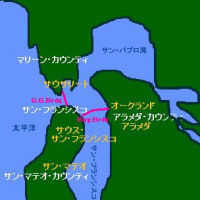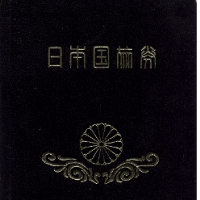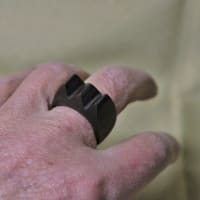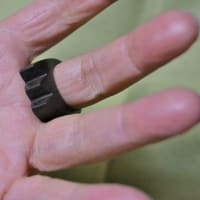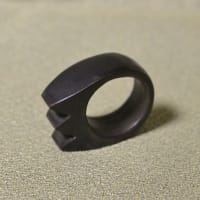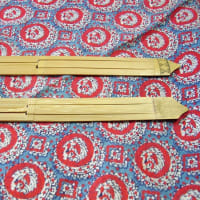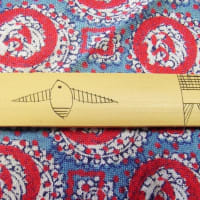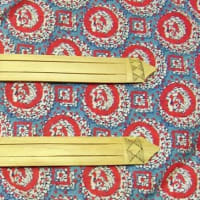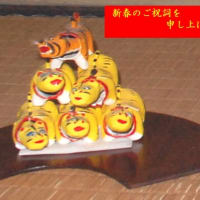His Majesty's Answers to the Question by the Press on the Occasion of His 85th Birthday 2018, and the Activities of the Emperor over the Past Year
(Imperial Household Agency Press Club)
- Question
This is the last year Your Majesty celebrates Your birthday as the Emperor. The days that Your Majesty, together with Her Majesty the Empress, have carried out Your duties will soon come to a closure, and the throne will be succeeded by a new generation of the Imperial Family. Could You tell us Your current thoughts and share with us any messages You would like to convey to the people of Japan? -
Answer
As I look back over the past year, I cannot forget the natural disasters that struck with even greater frequency than in previous years. Many people lost their lives, while many others lost the basis of their livelihoods due to disasters such as torrential rains, earthquakes, and typhoons. I learned about each disaster in the papers and on television and then saw the actual state of damage with my own eyes on my visits to some of the afflicted areas, and the catastrophic destruction caused by the force of nature was beyond my imagination. I would like to offer my sincere condolences to all those who lost their lives and hope that those affected by the disasters will be able to return to their former lives as soon as possible. I remember that the first time I travelled to a disaster-afflicted region was in 1959, when I visited, as a representative of Emperor Showa, the areas struck by the Ise Bay Typhoon.
We are now coming to the end of the year, and the day of my abdication in the spring of next year is approaching. Ever since ascending to the throne, I have spent my days searching for what should be the role of the Emperor who is designated to be the symbol of the State by the Constitution of Japan. I intend to carry out my duties in that capacity and shall continue to contemplate this question as I perform my day-to-day duties until the day of my abdication.
The international community after World War II was defined by an East-West Cold War structure, but when the Berlin Wall came down in the fall of the first year of Heisei (1989), marking the end of the Cold War, there were hopes that the world might now welcome a time of peace. However, subsequent global developments have not necessarily gone in the direction that we desired. It pains my heart that ethnic disputes and religious conflicts have occurred, numerous lives have been lost to acts of terrorism, and a large number of refugees are still enduring lives of hardship today throughout the world.
Those were the conditions that Japan faced as we walked the path in the post-war years. I was 11 years old when the war ended, and in 1952, at the age of 18, my Coming of Age Ceremony was carried out followed by the ceremony of Investiture as Crown Prince. That same year the San Francisco Peace Treaty was formally implemented, marking Japan’s return to the international community, and I remember welcoming the foreign ambassadors and ministers newly arriving in Japan one after another. The following year I attended the Coronation of Her Majesty Queen Elizabeth II of the United Kingdom, and I spent about six months before and after the Coronation visiting many countries. In the 65 years since then, thanks to the efforts made by the people of Japan, our country has taken steady steps forward in the world and has come to enjoy peace and prosperity. In 1953, the Amami Islands were returned to Japan, followed by the Ogasawara Islands in 1968, and Okinawa in 1972. Okinawa has experienced a long history of hardships, including what happened there during the war. I have visited the prefecture 11 times with the Empress, starting with the visits that I made in my days as Crown Prince, and have studied the history and culture of Okinawa. We are committed to continue to care for the sacrifices that the people of Okinawa have endured over the years, and that commitment will remain unchanged in the future.
Japan then entered the Heisei Era, during which we reached the milestone years of the 50th, 60th, and 70th anniversaries of the end of World War II. I have believed it is important not to forget that countless lives were lost in World War II and that the peace and prosperity of post-war Japan was built upon the numerous sacrifices and tireless efforts made by the Japanese people, and to pass on this history accurately to those born after the war. It gives me deep comfort that the Heisei Era is coming to an end, free of war in Japan.
I shall not forget the trips that the Empress and I made to Saipan for the 60th anniversary of the end of the war, to Peleliu Island in Palau for the 70th anniversary, and to Caliraya in the Philippines the following year, to pay our respects to those who lost their lives in the war. I am grateful to each of those countries for welcoming us with warm hospitality.
Natural disasters also left an indelible impression on my mind. Many disasters struck Japan in the Heisei Era, from the eruption of Mt. Unzen’s Fugen Peak in 1991, the Earthquake off Southwest Hokkaido and the ensuing tsunami that hit Okushiri Island in 1993, to the Great Hanshin-Awaji Earthquake in 1995 and the Great East Japan Earthquake in 2011. These disasters have claimed numerous lives and affected countless people, and I have no words to describe the deep sadness I feel when I think of this. At the same time, I have been heartened to see that, in the face of such difficulties, the spirit of volunteering and other forms of cooperation is growing among the people and that the awareness of disaster preparedness and the capacity to respond to disasters are increasing. I am always touched by the sight of people coping in an orderly manner when disasters strike.
The Empress and I have also considered it an important duty of ours to care for those with disabilities and others faced with difficulties. Sports for the disabled began in Europe for the purpose of rehabilitation, but it has always been our hope that, extending beyond those origins, they will grow into something that disabled persons themselves enjoy doing and that people enjoy watching as well. It moves me deeply to see that people are now enjoying the Paralympics and also the National Sports Games for the Disabled, held annually in Japan.
This year marked 150 years since the beginning of Japanese emigration overseas. Over the years many Japanese people who emigrated have continued to work hard, with the help of the people in their newly settled countries, and they have come to play important roles in the societies there. Thinking of the efforts of those people of Japanese ancestry, we have made a point of meeting with them as much as possible when visiting those countries. Meanwhile, many foreign nationals have come to work in Japan in recent years. When the Empress and I visited the Philippines and Viet Nam, we met individuals who were making efforts towards their goals of working in Japan one day. Bearing in mind that the people of Japanese ancestry are living as active members of society with the help of the people in their respective countries, I hope that the Japanese people will be able to warmly welcome as members of our society those who come to Japan to work here. At the same time, the number of international visitors to Japan is increasing year by year. It is my hope that these visitors will see Japan with their own eyes and deepen their understanding of our country, and that goodwill and friendship will be promoted between Japan and other countries.
In April next year, the Empress and I will celebrate the 60th anniversary of our marriage. The Empress has always been at my side, understood my thoughts, and supported me in my position and official duties as I performed my duties as the Emperor. She also showed great devotion towards Emperor Showa and others related to me and raised our three children with deep affection. Looking back, it was soon after I embarked on my life’s journey as an adult member of the Imperial Family that I met the Empress. Feeling a bond of deep trust, I asked her to be my fellow traveller and have journeyed with her as my partner to this day. As I come to the end of my journey as Emperor, I would like to thank from the bottom of my heart the many people who accepted and continued to support me as the symbol of the State. I am also truly grateful to the Empress, who herself was once one of the people, but who chose to walk this path with me, and over sixty long years continued to serve with great devotion both the Imperial Family and the people of Japan.
Finally, I will abdicate next spring and a new era will begin. I am sincerely thankful to the many people who are engaged in the preparations. The Crown Prince, who will be the Emperor in the new era, and Prince Akishino, who will be supporting the new Emperor, have each accumulated various experiences, and I think that, while carrying on the traditions of the Imperial Family, they will continue to walk their paths, keeping pace with the ever-changing society.
As the year draws to a close, it is my hope that the coming year will be a good year for all the people.
Source: The Imperial Household Agency website (http://www.kunaicho.go.jp/page/kaiken/show/25)










